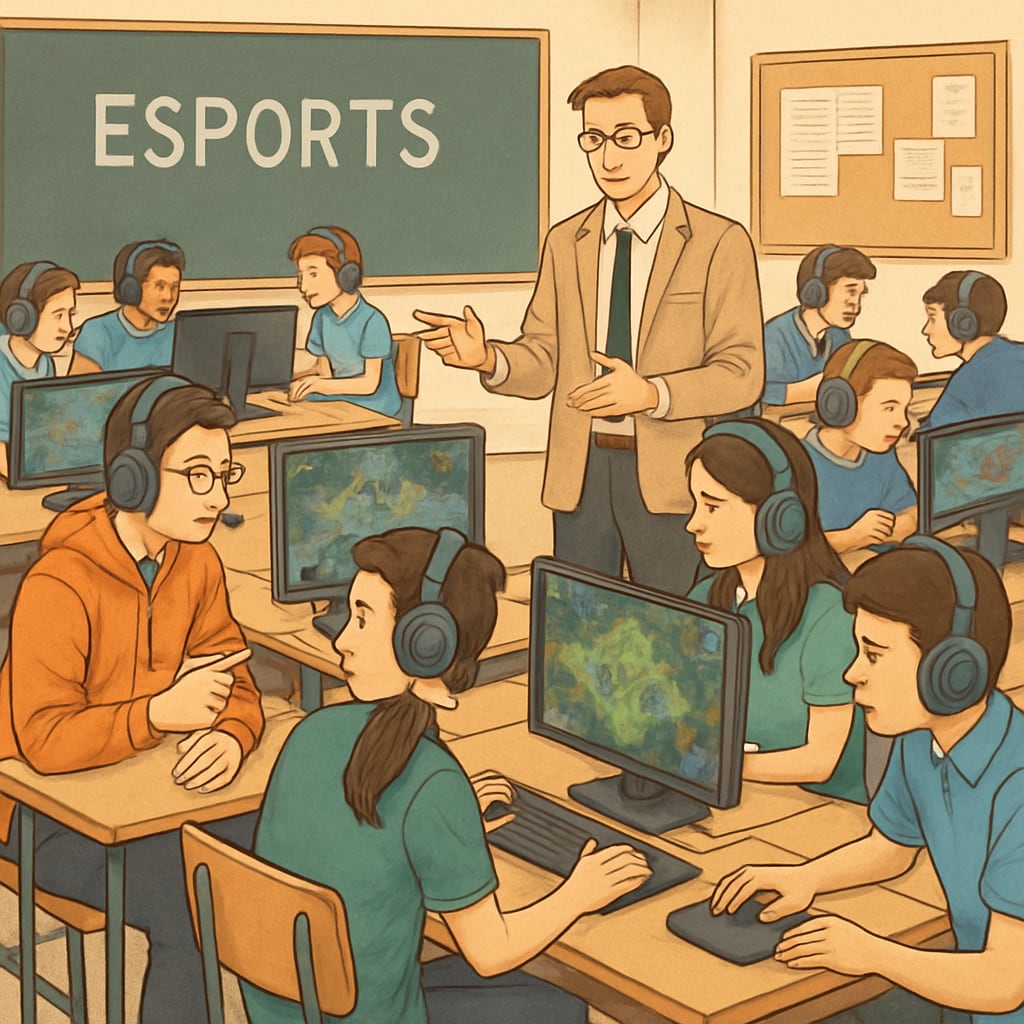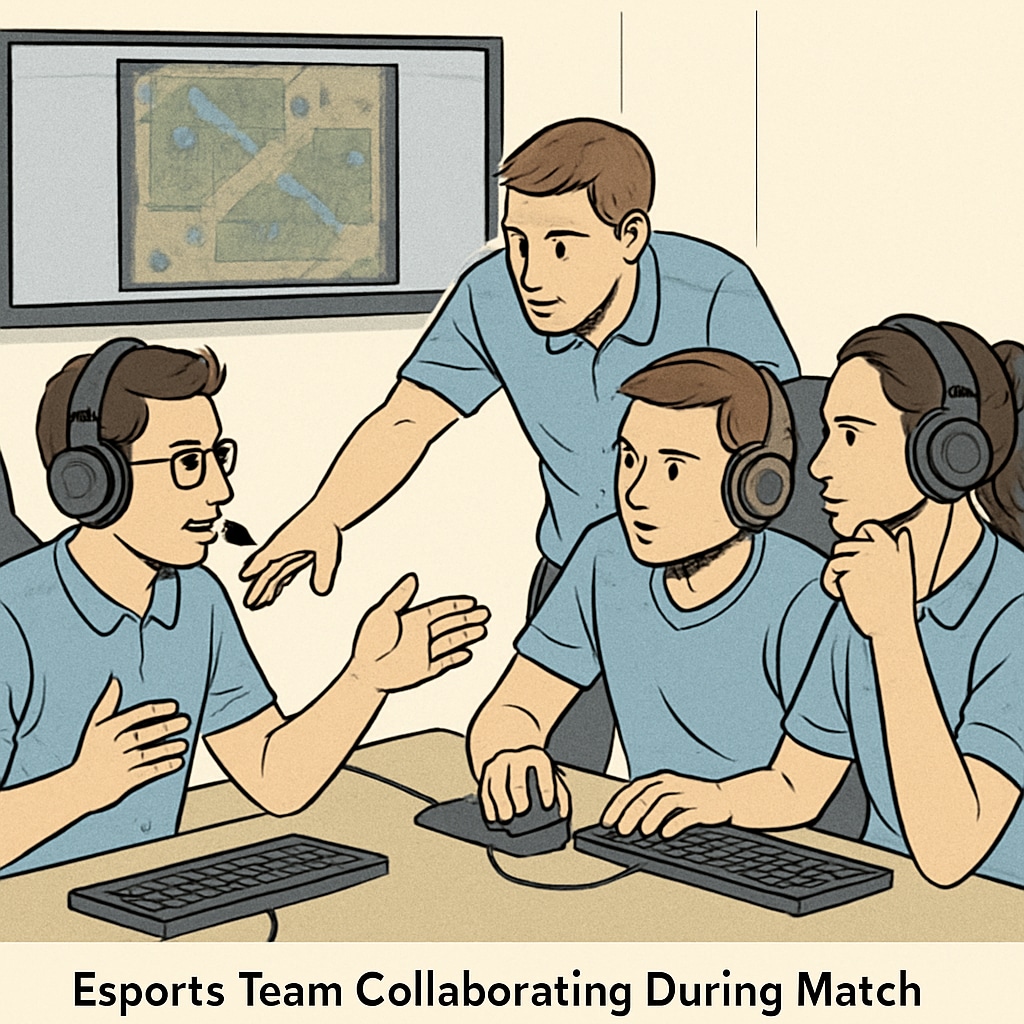The partnership between NASEF (North America Scholastic Esports Federation) and GameClass marks a groundbreaking step for esports education, game-based learning, and strategic cooperation in K12 classrooms. By combining the immersive nature of esports with core academic subjects, this collaboration provides an innovative approach to education in over 9,000 esports clubs worldwide. This transformative model is reshaping how students engage with learning, ensuring both academic growth and practical skill development.
The Rise of Esports in Education
Esports has grown from a niche hobby to a global phenomenon, with millions of players and spectators worldwide. Its integration into education, however, is a relatively new endeavor. Schools and educators are beginning to recognize the potential of esports not just as a form of entertainment but as a powerful tool for learning. According to a Britannica article on video games, gaming fosters critical thinking, teamwork, and problem-solving skills—key competencies in today’s fast-evolving world.
This is where NASEF and GameClass come into play. Their partnership aims to leverage the engagement of esports to teach subjects like mathematics, literature, and even social sciences. By doing so, they are not only enhancing traditional curricula but also aligning with the interests of a tech-savvy generation of learners.

Game-Based Learning: A Gateway to Deeper Engagement
Game-based learning (GBL) involves the use of gaming elements to teach or reinforce academic concepts. Research highlights that GBL boosts student motivation, improves retention rates, and encourages active participation. In this context, the NASEF and GameClass collaboration is setting a new standard for how esports can be effectively integrated into classrooms.
For example, an esports tournament can be designed to teach students about probability and statistics. Similarly, storytelling elements in games can be used to foster narrative writing skills. These practical applications turn abstract lessons into tangible experiences, making learning both enjoyable and memorable.
Moreover, this approach extends beyond academics. Students involved in esports education also develop soft skills such as communication, leadership, and adaptability—qualities that are invaluable in any future career path.

Transforming K12 Classrooms with Esports
The introduction of esports and game-based learning into K12 classrooms presents unique challenges and opportunities. On one hand, schools need to invest in technology and teacher training. On the other hand, this approach offers a way to engage students who might be disinterested in traditional teaching methods.
NASEF and GameClass address these challenges by providing resources and frameworks designed specifically for educators. Their programs include lesson plans, teacher workshops, and access to a global network of esports clubs. This comprehensive support ensures that teachers can seamlessly incorporate esports into their curricula, regardless of their prior experience with gaming.
For students, the impact is immediate. They see the relevance of their studies in real-world scenarios, whether it’s calculating in-game strategies or analyzing the economics of esports tournaments. As a result, their enthusiasm for learning increases, leading to better academic outcomes.
The Global Impact of Esports Education
With over 9,000 esports clubs benefiting from this strategic partnership, the global reach of NASEF and GameClass cannot be overstated. This initiative is not limited to any one region or demographic; it is designed to be inclusive, offering equal opportunities to students from diverse backgrounds.
Furthermore, the collaboration is setting a precedent for other educational institutions worldwide. By proving that esports can be a legitimate and effective educational tool, NASEF and GameClass are opening the door for more schools to adopt similar models. For additional insights into the educational applications of gaming, see this Wikipedia entry on game-based learning.
As the partnership evolves, it is likely to inspire further innovations in the field, creating a ripple effect that will benefit educators, students, and the esports industry alike.
Conclusion: The strategic partnership between NASEF and GameClass represents a bold step forward in the realms of esports education and game-based learning. By bridging the gap between gaming and academics, this initiative is transforming how students learn, engage, and prepare for the future. As more schools embrace this model, the potential for educational innovation becomes limitless.


